Conservation & Research
In many respects, conservation and research are inseparable; this is especially true here at the Assiniboine Park Zoo. Our conservation initiatives are focused in three areas:
- Arctic and subarctic species conservation
- Manitoba species conservation
- Conservation of international species at risk
Conservation and research programs at Assiniboine Park Zoo are aimed to support the betterment of animals in our care and to assist conservation efforts in the wild. Researchers at the Leatherdale International Polar Bear Conservation Centre are engaged in a number of exciting and valuable research projects that will continue to expand our collective knowledge and understanding of the amazing animals with whom we share our planet!
Our goal is to educate Zoo visitors and the community through conservation action and education and inspire them to value wild things and wild places. This will ultimately help to conserve animals and their habitats.
Interested in conducting research with Assiniboine Park Zoo? Click here to learn more.
Arctic and Subarctic Species Conservation
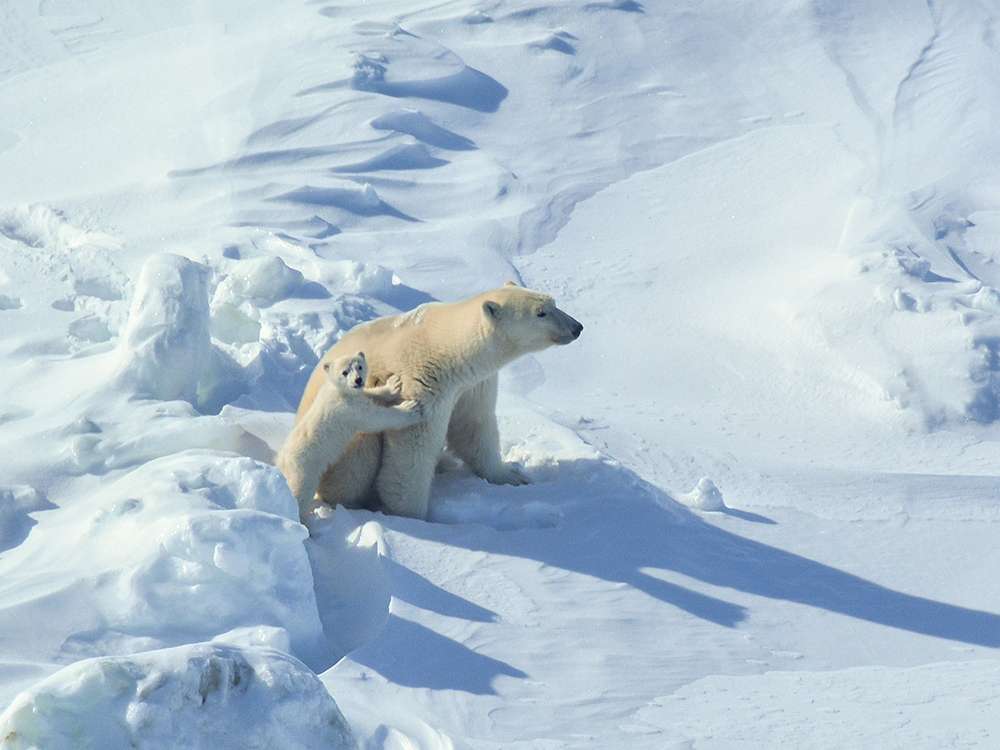
Polar Bear Denning Study
We are compiling existing knowledge of polar bear denning areas into an accessible, comprehensive map. This can be used by land managers and northern communities to help make informed decisions about their land and identify critical habitat for polar bears. Read more about this study.
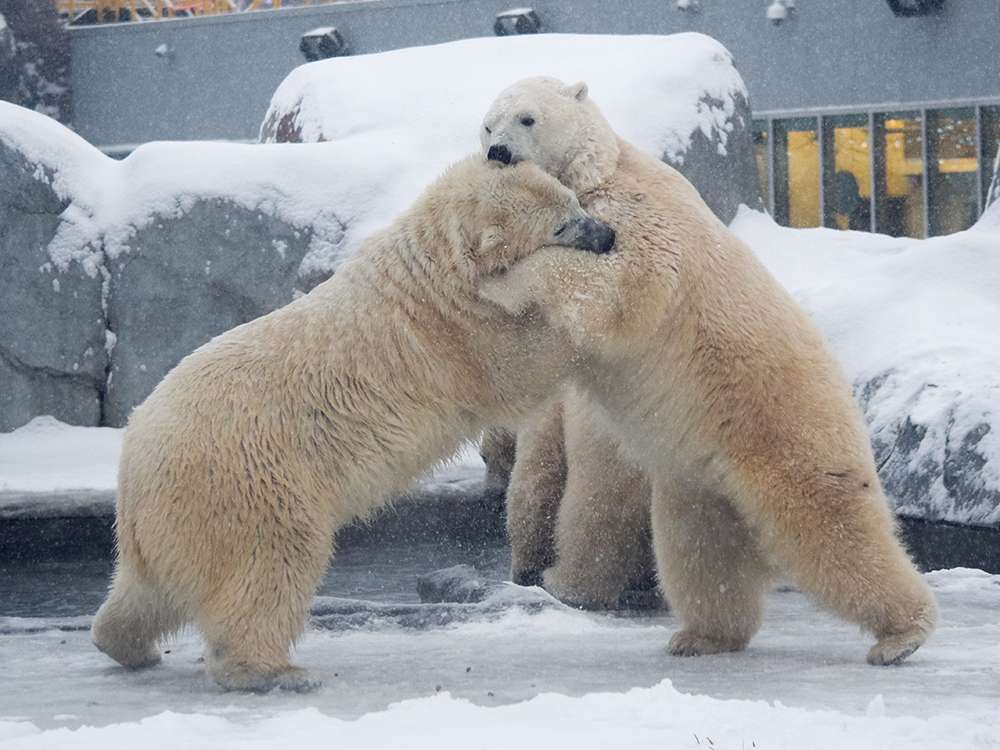
Non-Invasive Techniques to Study Polar Bear Behaviour
Having polar bears in our care provides an opportunity to validate non-invasive techniques and understand more about the fascinating biology of polar bears. We have been investigating social play among wild polar bears which is not well understood. We use thermal imagery to measure the temperature changes that occur while polar bears are engaged in social play which tells us how much energy they are using. Polar bears in our care can participate in research projects that help us better understand their wild counterparts and allow us to validate and perfect new non-invasive methods.
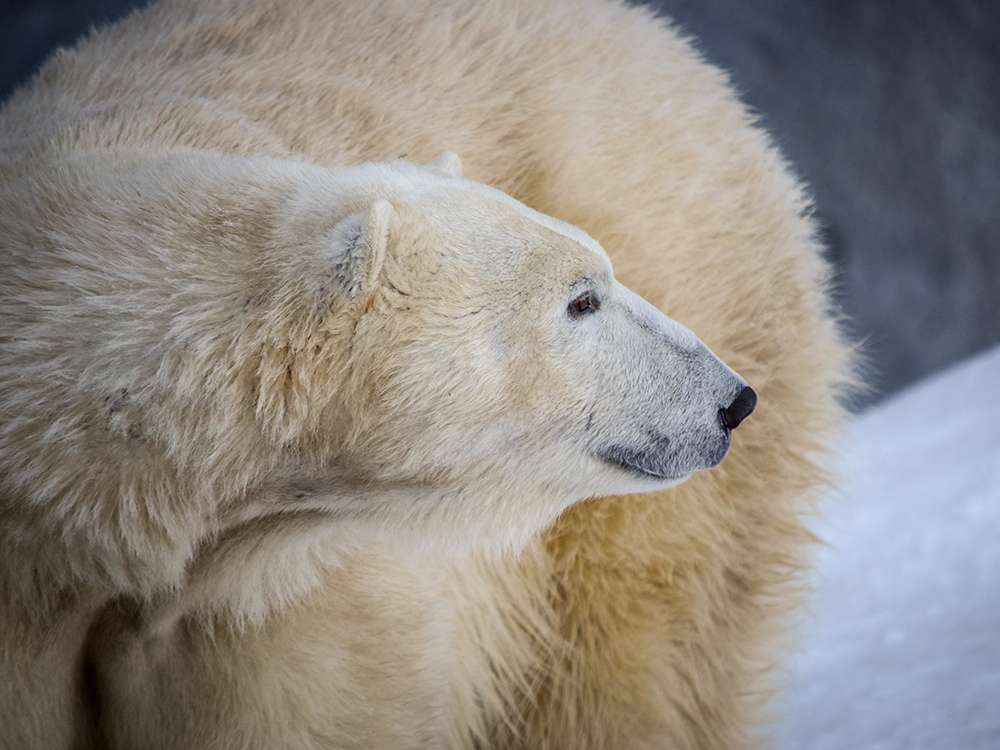
Whiskerprint Technology to Individually Identify Polar Bears
Each polar bear has a unique pattern formed by their whiskers known as a ‘whiskerprint’. Whiskerprints may offer the opportunity to identify polar bears over time without needing to capture and handle them. Our bears at the Zoo are helping us understand how these patterns might change over the entire life span of a polar bear. This is a collaboration with researchers at the University of Manitoba.
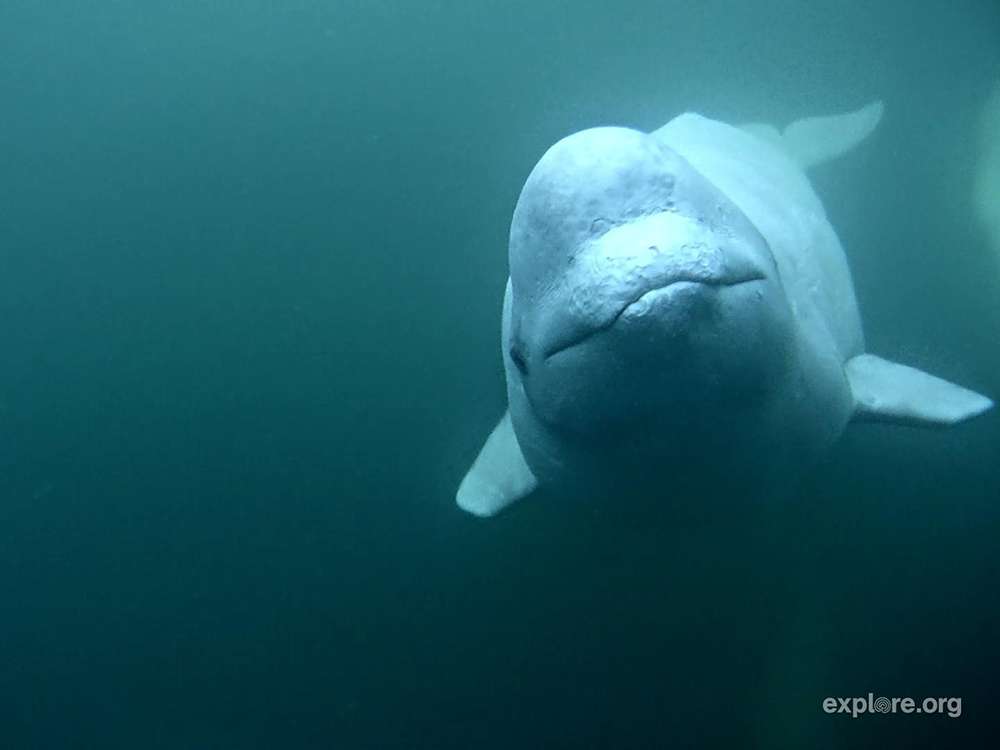
Beluga Bits
Hudson Bay is home to over 50,000 beluga whales and thousands of them visit the Churchill River estuary each summer. We work with citizen scientists and local collaborators to collect and classify underwater images of beluga. This data is then used to learn about beluga whale social structure, threats and health, and basic natural history. This project uses non-invasive data and the passion of citizen scientists to learn more about these wonderful whales. Click here to help contribute to this research.
Beluga Bits is a partnership between Polar Bears International, Zooniverse.org, and Explore.org
The Beluga Bits project is supported by RBC Foundation.

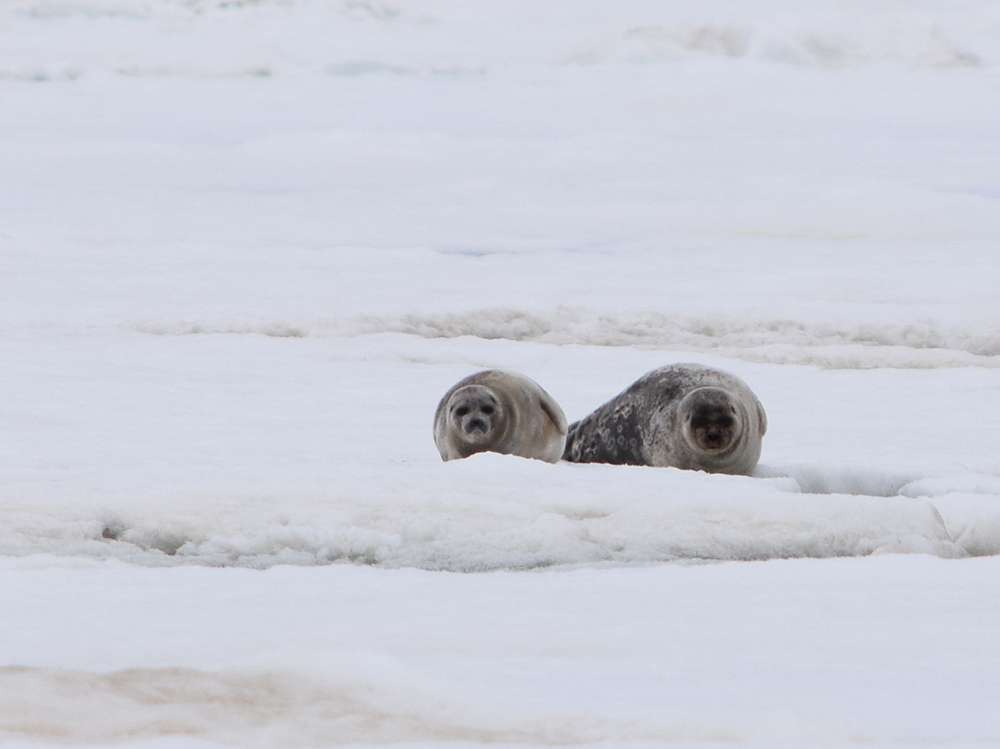
How Seals are Adapting to a Changing Arctic
Hudson Bay is home to two closely related seals, the ringed seal and harbour seal. This species pair are expected to respond very differently to changes in sea ice with global warming, and we have been monitoring these changes. We have been involved in a range of projects focusing on genetics, life history, and behaviour of Arctic seals.
Research efforts made possible with support from Calm Air.

Manitoba Species Conservation
Grassland Butterfly Conservation Program
Native grassland habitats are increasingly threatened by a wide array of human influences including habitat conversion, invasive species, pesticide use, and climate change. The loss of this prairie habitat has resulted in the dramatic decline of several highly specialized grassland species, including the Poweshiek skipperling and Dakota skipper. At Assiniboine Park Zoo, we have established a head-starting program for grassland specialist butterflies that are at risk of extinction. These species are raised at the Zoo until they are old enough to survive on their own, then released into the wild to increase the population size or re-establish the population in areas where they have gone extinct.
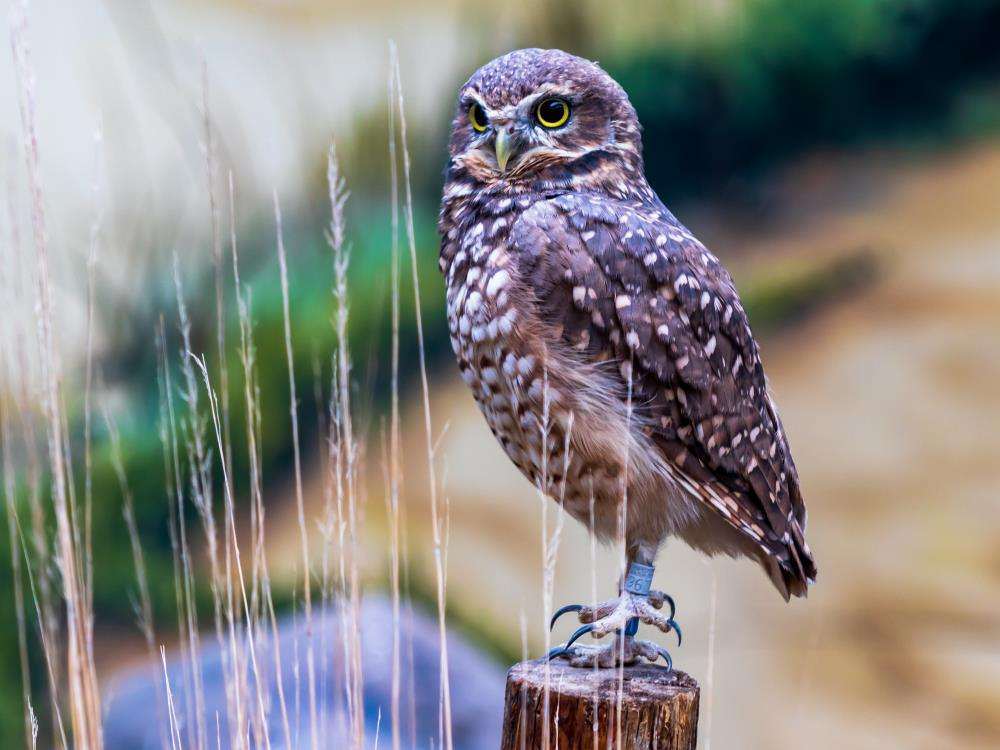
Burrowing Owl Recovery in Manitoba
Burrowing owls are endangered in Canada, and in Manitoba and we have been involved in recovery efforts with the Manitoba Burrowing Owl Recovery Program since 2010. We also support student research on genetics research using Manitoba owl samples.
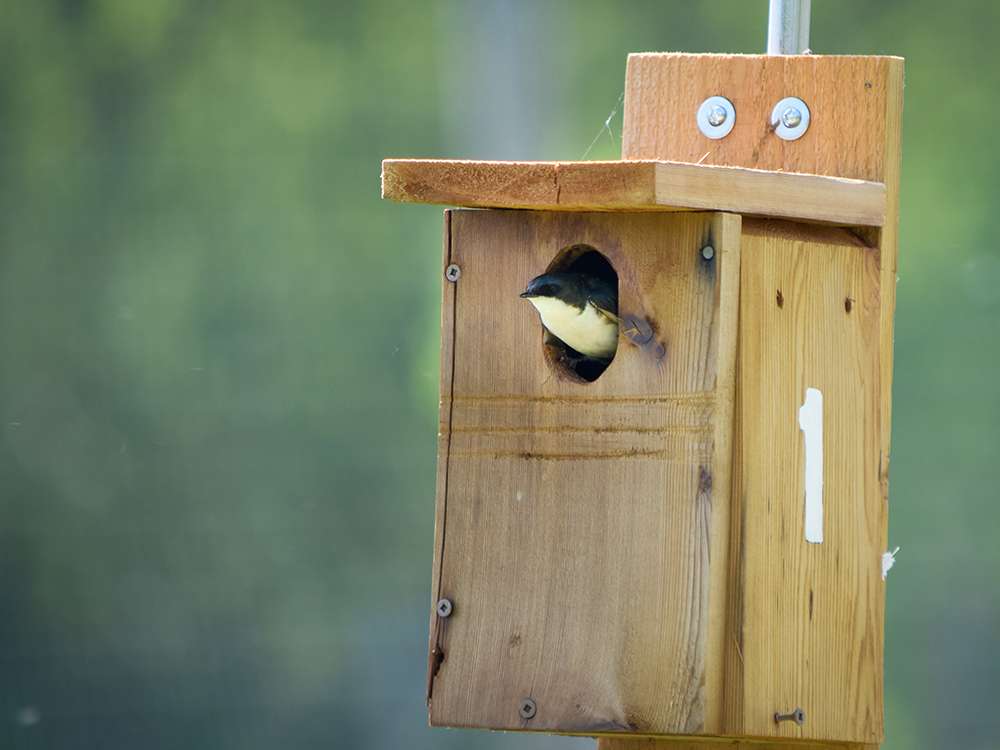
Saving Animals From Extinction (SAFE)
Saving Animals from Extinction combines the power of zoo and aquarium visitors with the resources and collective expertise of zoos and aquariums accredited by the Association of Zoos & Aquariums (AZA) and partners to save animals from extinction. Together we are working on saving the most vulnerable wildlife species from extinction and protecting them for future generations. We are currently involved in the Monarch Butterfly and North American Songbirds SAFE programs.
In an effort to maintain and increase the diversity of wild bird species in the park and Zoo, we support natural areas that birds depend upon. We do this by mitigating on site windows with bird collision deterrents, and by building bird nesting areas such as the artificial Chimney Swift tower and Tree Swallow nest boxes. We also provide education and outreach to the public on how we can all do our part to protect local birds.
Conservation of International Species at Risk
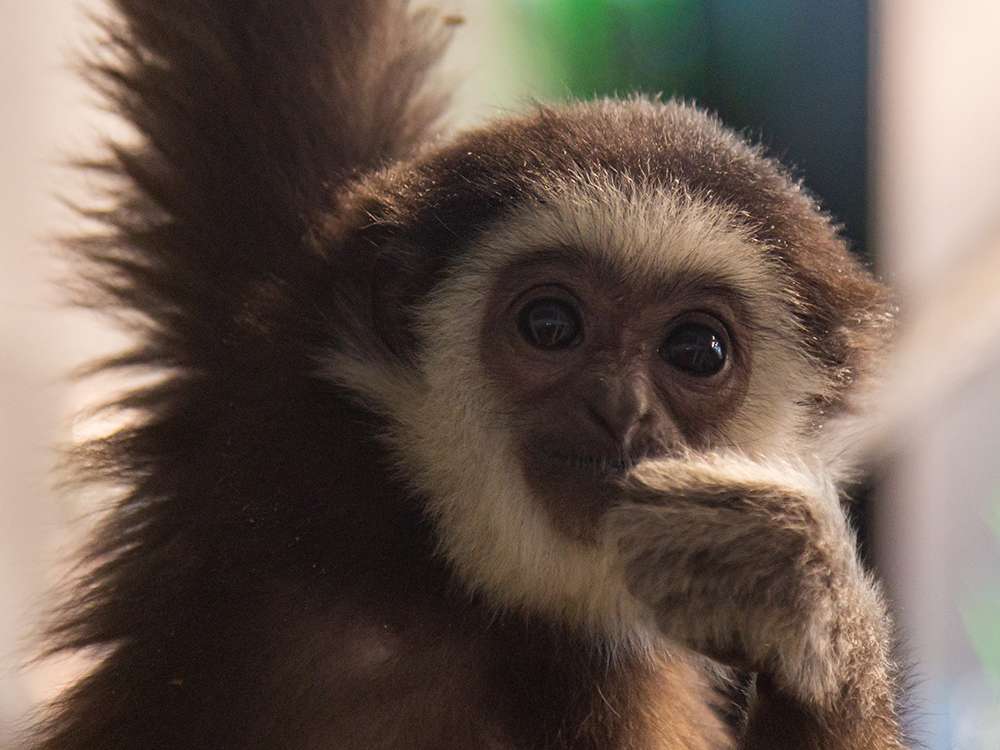
Species Survival Plan Programs (SSP)
Zoos across the world participate in programs to maintain genetic diversity in the populations they care for and these are known as species survival programs. Assiniboine Park Zoo currently participates in 30 breeding programs through both the Species Survival Plan (SSP) and the European Endangered Species Program (EEP). Many of these programs represent species that urgently need to be conserved and protected in the wild. SSP programs not only manage the animals in care but they raise awareness and funds to contribute to field conservation efforts to save species in the wild.

Community Conservation Outreach
Some of the species at Assiniboine Park Zoo need extra help in their native range and we support the work of other conservation organizations by hosting special events and promotions. These events raise awareness about international species at risk such as red pandas, snow leopards, and polar bears and fundraise for organizations that do on-the-ground conservation work on these species. Keep an eye on our upcoming events calendar to see when you can join us at the Zoo for these fun packed days and take your learning and participation to the next level.
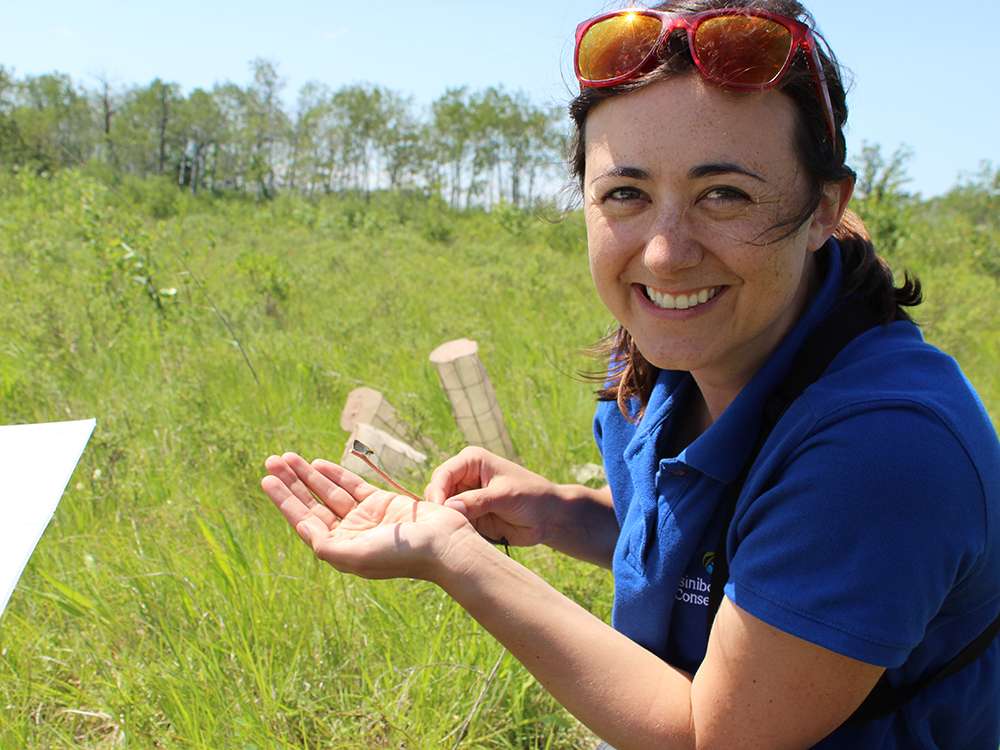
Wildlife Conservation Fund
Join us in taking action to protect and conserve wild species and places! As a not-for-profit conservation organization, the Assiniboine Park Conservancy relies on the generosity of donors to make our conservation programs possible. Our Wildlife Conservation Fund was established to support projects led by our Conservation & Research team and the work of external organizations that share our vision of conserving animals and their habitats. For example, in the face of the catastrophic bushfires impacting Australia, we were able to commit $10,000 from this fund to support short-term wildlife relief efforts and long-term habitat recovery.
